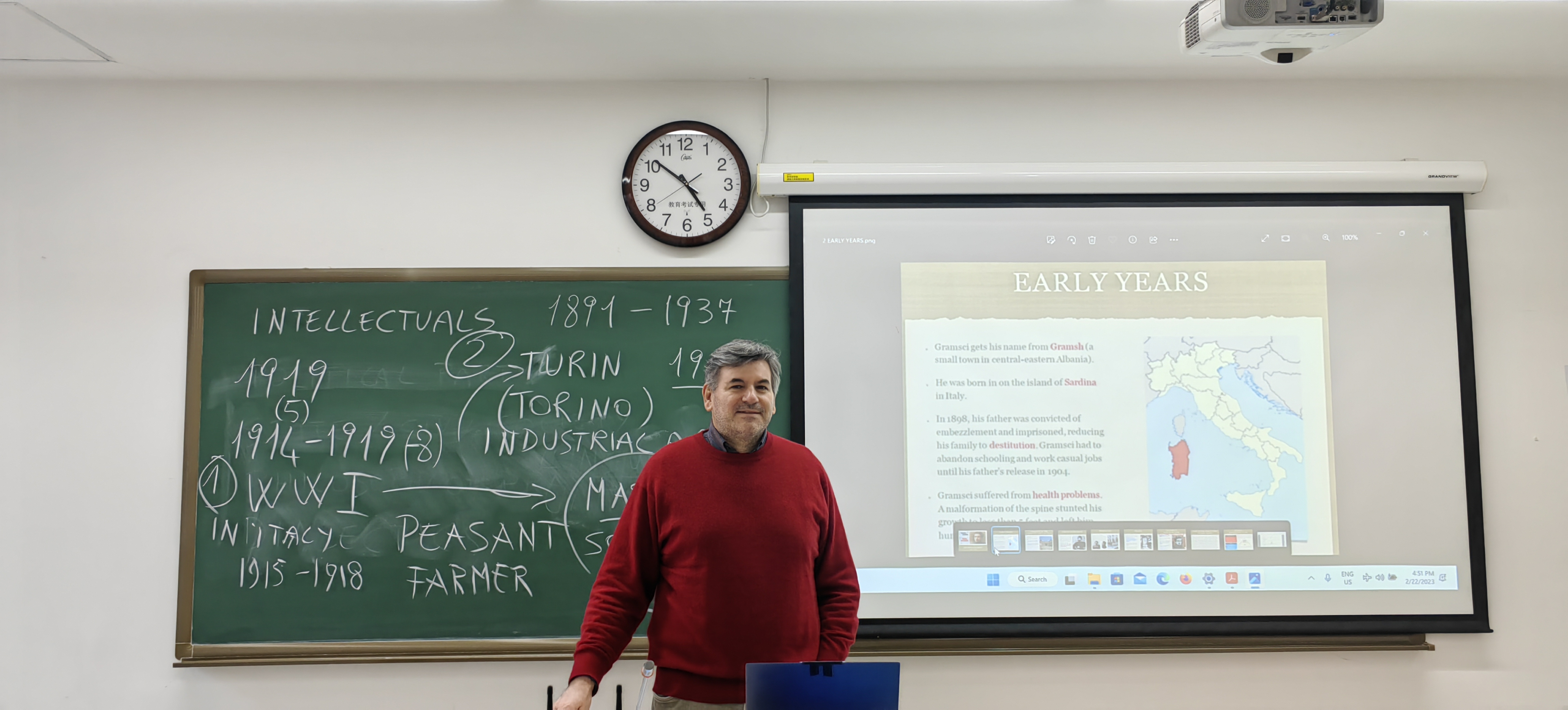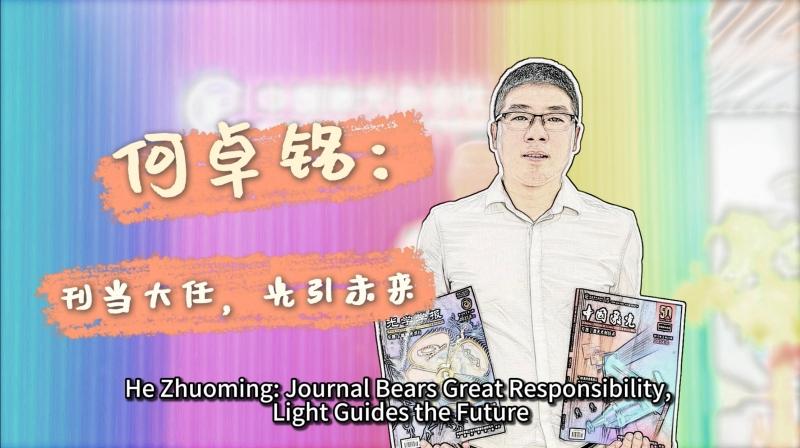Understanding China through Culture
By?LONG?Yun?&?BI?Weizi

Professor Rocco Lacorte. (COURTESY PHOTO)
"I find a very welcoming and warm academic environment in China and Nankai University (NKU), which is stimulating for conducting my studies," said Italian Professor Rocco Lacorte in a recent interview with Science and Technology Daily, adding that the ideal academic environment in China is conducive for him to carry out Marxism research.
Putting translating theory into practice
This Marxist scholar attaches great importance to the study of translating theory into practice. He explains that his interest in the subject stems from his background in philosophy, specifically Marxist philosophy. He underlines the significance of the relationship between knowledge and experience and the importance of understanding the process of translation, which he associates with the studies of Italian Marxist Antonio Gramsci.
According to Lacorte, knowledge alone is insufficient to make substantial changes and must be translated into effective practice. He believes that the Marxist theory of translation offers a way to innovate both in theory and practice, highlighting the role of communicating and its importance to the public. In order to maximize the effects, Lacorte emphasizes the flexibility of adapting to different environments. His words and approach are always tailored to the audience he is addressing.
Culture, a key element to understanding China
Lacorte interprets his deep attraction by China's culture through Marxist views. According to him, culture is an ongoing process of unification between theory and practice, knowledge and experience. In this sense, he sees China as "a leading example of culture," where the translation of knowledge into effective practice improves the well-being of the people through applying theoretical innovation.
One of the main reasons why China's culture attracts Lacorte is its historical development spanning over 5,000 years, which makes a significant difference with respect to other countries and explains the success of the ongoing evolution in China. He also sees culture as a key element to understanding China's good governance and success.
For Lacorte, China's high-level culture, as well as the Communist Party of China's extraordinary ability, is improving the well-being of the people through the application of theoretical innovation. This, in turn, implies a very high and deep collective political consciousness, which goes back to the many years of cultural and pedagogical work that has been done in the country. From his perspective, the ability to translate between theory and practice can only be performed when culture has reached a certain level of historical development.
Impressed by the dynamic and promising research environment
Lacorte also noted the incredible speed at which China has achieved economic, environmental, and social achievements in recent years. He is particularly impressed by the highly organized and advanced nature of China's research and innovation environment, which he believes is comparable to the most developed countries in the world.
"China has emerged as a global leader in scientific research and technological innovation in recent years, achieving breakthroughs in various fields of study," said Lacorte, when expressing his positivity about working in China and his observations on China's sci-tech innovative environment.
Lacorte noted that China has five cities ranked in the top 30 according to the Global Innovation Hubs Index (GIHI) 2022.
"The country has become a global driving force of industrial transformation, supporting innovation and creating a greener environment," said Lacorte, adding that China is ahead of the West regarding developing a sustainable and greener world. He believes that China has almost created "a miracle" in achieving technological innovation in the last few years. China's research environment is dynamic, attractive, and promising for the future of China and the world.
Lacorte attributed China's rapid progress in innovation to its awareness of the need to adapt its knowledge to the changing developmental conditions, both locally and internationally. This awareness, coupled with the country's financial capacity, creates a highly dynamic environment where innovation can thrive, he said.
This article is also contributed by LUAN Jianhong from NKU.







